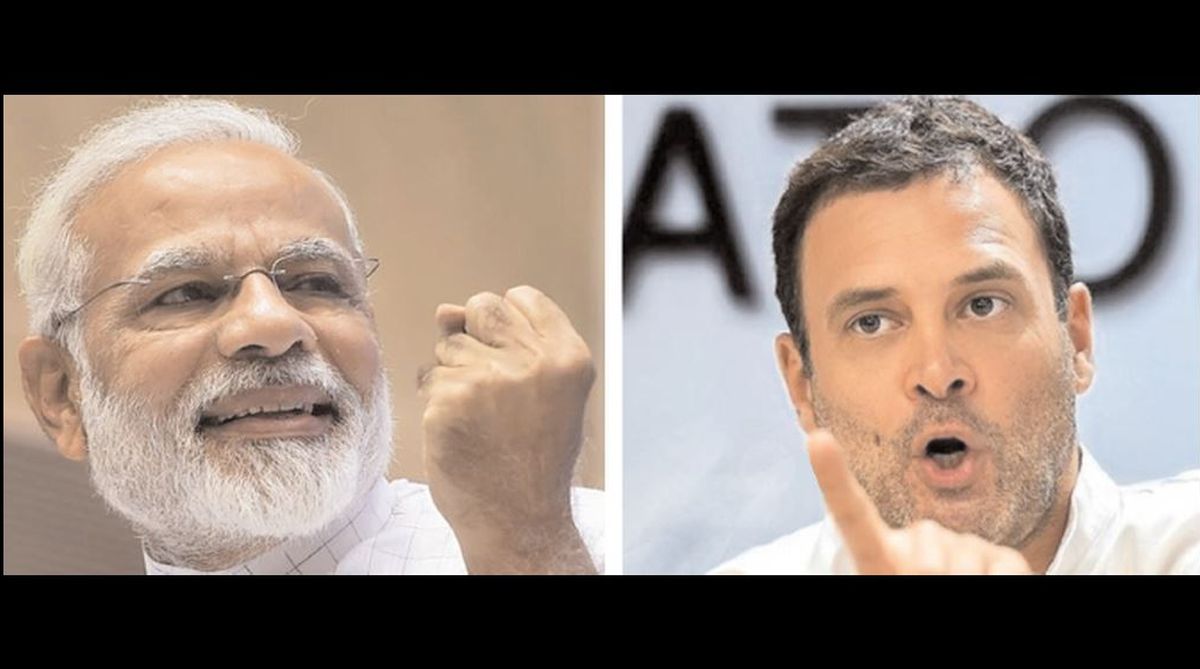The country’s immediate future does not inspire hope. It is an uninviting prospect from the political, economic and social points of view.
To start with politics. Whoever emerges on top in 2019, whether it is Narendra Modi or Rahul Gandhi or someone else from a khichdi (motley) combine, it is clear that governance will be under severe constraints.
Advertisement
These difficulties can be handled only by a dynamic figure of high intellectual calibre and deep understanding of economic and social forces. But there is no such person in sight. By and large, the Indian political class comprises mediocre personalities even at the high levels.
If Modi is the front-runner, he will be hobbled by the expected shortfall in the number of the BJP M.P.s compared to the present, thereby depriving the party of a majority of its own in the Lok Sabha and making it dependent on the allies.
But a weakened BJP cannot but make the allies more assertive, especially when they realise that Modi has lost much of his earlier sheen. In view of the changed perception of his persona, it is open to question how effective Modi will be as a leader since he is likely to hear dissenting voices not only from the allies, but also the ministers and mandarins which he had never experienced during his tenures as the Gujarat chief minister and later as the Prime Minister.
In fact, it is doubtful if Modi will at all be able to run a coalition which he has never done before. Even his present government has seen desertions by the Telugu Desam and a section of the Rashtriya Lok Samta Party, and dissonance from the Shiv Sena. There is likely to be more such rebellions.
In such a situation, it is unlikely that Modi will be able to do anything substantial to breathe life into the economy, which is facing a “serious crisis”, according to BJP MP Subramanian Swamy.
The same helplessness in the field of administration is also likely to be experienced by any other leader who is at the helm. Moreover, if Modi is under pressure from the Right-wingers, viz. the militant Hindus, a non-BJP leader will have to cope with the pulls and pressures of the Leftists inside and outside the government with their fetish for populism which is hurtful for the economy.
The kind of an initiative which PV Narasimha Rao showed to end the economically stifling licence-permit- control raj in 1991 and which Modi’s unfulfilled promises about a booming entrepreneurial ambience signalled in 2014 are unlikely to be seen in the immediate future.
A moribund economy can only lead to regressive demands for loan waivers for farmers in distress and job reservations for the unemployed youth. But both are short-term palliatives which offer no hope of a permanent solution and will take the country backwards.
Loan waivers, for instance, reduce the funds available for public investment in agriculture, thereby acting as a cause for further distress. On the other hand, reservations in educational institutions and government offices keep the meritorious out in favour of candidates whose entitlements are their castes or political connections. Falling standards are the outcome.
The dearth of government jobs will fuel demands of reservations in the private sector, raising the spectre of the private sector becoming a part of a revived licence-permit-control raj, scaring away investors.
The solution to the problem of destitute farmers and jobless young people is closely linked. Since the only way to revive the agricultural sector is by relieving the pressure on the land by moving the small and marginal peasants from farms to factories, an entrepreneurial/industrial rejuvenation has to be the first objective of any government for creating job opportunities.
In the years immediately after independence, this aim was sought to be achieved via the public sector enterprises. However, the mistake of neglecting the private sector, apart from a few companies run by the crony capitalists, undermined economic progress.
Unfortunately, this aversion towards giving the private sector full play, and not the crony capitalists alone, still persists because of the preference for “socialism”, famously articulated by the Congress’s 1955 resolution pledging to establish a “socialistic pattern of society”.
Even when Manmohan Singh as the finance minister in 1991 overturned these Nehruvian ideas, “there was a lot of opposition within the country and within the party (the Congress)”, as he later said.
When Rahul Gandhi mocks the Modi government for being “suit-boot ka sarkar”, he is reflecting this opposition to the private sector.
In fact, if Modi is perceived to have backed away from his earlier promises to introduce big-bang reforms, like selling the loss-making Air India, for instance, it is because of the fear that he will be seen as being beholden to the private sector which does not enjoy a wholesome reputation in India.
Unless and until the political class shows the courage of a Deng Xiaoping who said “to get rich is glorious”, India will continue to stumble along, unable to come anywhere close to the living standards of the West.
Ironically, the only person other than Narasimha Rao and Manmohan Singh who showed this courage was a Communist, the West Bengal chief minister, Buddhadeb Bhattacharjee, who invited foreign and domestic capitalists to invest in the state which saw a “flight of capital’ because of militant trade union tactics when the Left first came to power in 1967.
But he lost power because of aggressive resistance to his policies by Mamata Banerjee, the present chief minister. Curiously, she is now inviting the private sector to invest, but there is no response because of her earlier stance. As a result, the deserted Kolkata airport looks like Fatehpur Sikri, Emperor Akbar’s abandoned capital, according to Nobel laureate Amartya Sen.
Yet, if jobs are not created via small and big business ventures in which the private sector can play a major role, the social scene will remain tense and uncertain with the unemployed becoming cannon fodder in the hands of unscrupulous politicians ~ one-third of the MPs have a criminal background ~ who will use them to foster communal and caste-based animosity and violence.
And if the violence continues by the gau rakshaks (cow vigilantes) and other anti-social elements with the tacit support of the ruling parties, there will be no investment. It is a vicious cycle of unemployment fostering violence and violence deterring investment, thereby creating more unemployment.
The writer is a former Assistant Editor, The Statesman.











